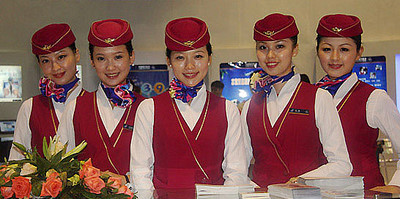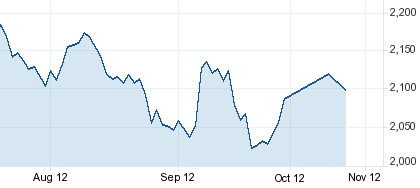
Main reference: Story in First Financial
THE YEAR OF THE SNAKE begins on the first day of the Chinese Lunar New Year next year.
But for some market analysts, it might just as well be called the “Year of the Bull.”
Half a decade flies by if you take your eyes off the calendar.
In 2007, investors in China were celebrating good times, with the benchmark Shanghai Composite Index hitting a high of 6,124 points.
Now, just five years later, we’re down over two thirds to just over 2,000.
We’ve passed through five different and unique Chinese zodiac animals this past half decade – including the “Golden Dragon” in which we all now live, which is supposed to be particularly auspicious.
Although the mid-way point of this period in 2009 did evince some upward market prejudice, there was never any threat of the Index rescaling the heights and topping the peaks of pre-Global Meltdown days in 2007.
Therefore, the national pride that was the Beijing Games of 2008 and the bullish market sentiment leading up to the Olympics at that time can only be seen in especially sharp contrast to the lack of optimism among current day A-share investors.
Low share prices and shrinking bottom lines have left may spirits low indeed.
But there is light at the end of the long, dark tunnel, and for those lucky and patient enough to stay upbeat and engaged – perhaps even a pot of gold awaits at the end of the rainbow.
Struggling shareholders holding onto “underwater” shares and waiting for a gasp of air may not be bowled over by the following truism, but true it is:
What comes up most always come down... and the reverse is true as well.

Photo: Company
By analogy... there is no such thing as a perpetually rising, or falling, market.
While the phrase is intuitive, overused and sometimes hackneyed to the point of being a bit worn out and clichéd, it is nevertheless important to remember that every market goes through a slump, and the duration of the downturn is as unpredictable as accurately forecasting when the market might jump by double digits in just a few trading sessions.
Therefore, to hold now may be the best option – more tactical than strategic – because there is reason to believe shareholders of depressed counters may be smiling as soon as next year.
Capital markets are no fun for Pollyanna-like investors as blind optimism usually is less reliable than the dartboard method in which one randomly chooses stock buys.
That being said, there are increasing signs that a bull market is on the horizon and hence reasons for increasing optimism.
From an overall viewpoint, the five years of generally bearish market behavior have left stock prices at least in the neighborhood of their historical nadirs.
That means that things -- at least in principle, and all things being equal – can only get better.
Over the past decade or so, we saw the benchmark index climb from a low of 2,245 in 2001 (just after the 9/11 terror attacks) all the way up to 6,124 in 2007, only to fall back to earth (i.e. 2,245 points) in late 2008 after the full extent of the global financial meltdown was apparent.
And since that point in 2008, there hasn’t been a whole lot of movement one way or the other, and we are currently stuck at that level, give or take.
So why should we be confident that the A-share markets have hit bottom?
Firstly, as China is still a nation heavily reliant upon industry, the all-important barometer of factory activity – the PMI – recently notched above the critical level needed to show growth versus contraction.
This may not translate into a surge of upstream and downstream activity (or sharebuying) overnight.

But it does suggest that the macroeconomic climate has weathered the storm and is on an upswing.
Now all that is needed to solidify the gradually improved sentiment is another raft of figures (CPI, trade data, and most importantly – GDP) to seal the deal.
And as China’s economy is by definition a somewhat unique model of “market socialism,” it would be remiss not to comment on the relative importance of economic planners in Beijing.
Now that all the mystery and guesswork is gone, China is presented with a new group of national leaders.
And what is it stock markets fear most, even more than tougher regulations?
Answer: Uncertainty.
Now that the government of the world’s largest country and its second largest economy is settled upon, China’s stock markets have one less thing to fear going into the Year of the Snake.
See also:
China Pension Fund Chief: Market’s Hit Bottom
'CHINA'S LADY BUFFETT': Latest Dealings
CHINA’S LADY BUFFETT Struggling Like Rest Of Us
POOF! 1.7 Trillion Yuan Gone From China Mkt Since May







